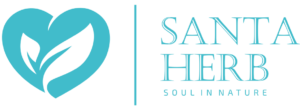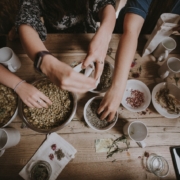Everything You Should Know about Chinese Herbal Extracts and TCM
Traditional Chinese medicine (TCM), which also includes acupuncture, massage, nutritional recommendations, and exercise, includes Chinese herbal extracts as part of a larger treatment system known as traditional Chinese medicine (TCM)
TCM is a popular treatment option in Australia, with over three million individuals seeing a TCM practitioner each year.
TCM’s main principles go counter to traditional Western views about health, illness, and body mechanics. Unbalanced energy, or Qi (pronounce ‘chee’), runs through the body’s invisible meridians, and Chinese medicines are use to balance it out. Whether or not the theory is accept, research have proven that Chinese herbal remedies are effective in treating a variety of ailments, especially gynaecological and gastrointestinal problems.
World Believe’s Herbs ✅
Chinese herbal medicines (CHMs) have well-documented benefits in the prevention and treatment of diseases all over the world. CHMs are gaining popularity in international markets at an increasing rate. Quality control of CHMs, on the other hand, is a critical issue for their acceptability and acknowledgment on the international market. The quality criteria for CHMs entering the European Union (EU) market are the topic of this review.
Five elements in herbal medicine ✅
Everything, including body organs, according to TCM philosophy, is made up of five elements: fire, earth, metal, water, and wood. Sweet, salty, bitter, pungent, and sour are the five flavours that correlate to the five elements. Because the skin is a metal Yang organ, it would be treat with a pungent herb, for example.
Use of Herb in Chinese medicine ✅
Plants make up the majority of Chinese herbal remedies, but some formulations also contain minerals or animal substances. Powders, pastes, lotions, and pills are all options depending on the herb and its intended use. Herbs offer a wide range of properties that can help to balance different parts of the body. When prescribing a certain herb or mixture of herbs, the practitioner must consider the status of the patient’s Yin and Yang, as well as the elements that regulate the affected organs.
Things Need to remember ✅
T
Herbs have the same potency as pharmaceutical pharmaceuticals in terms of their effects on the body, and they should be treat with the same caution and care. Some herbs might be hazardous in large doses, while others can cause allergic reactions. Make certain that the person you’re working with is completely qualified. Do not stop taking your regular medication or modify the dose without first visiting your doctor.
Some General Knowledge for our Customers ☑
Every living thing is nourish by a balance of two opposing elements of energy known as Yin and Yang, according to the ancient Chinese. They make up Qi, or life essence, which is a type of energy that flows through the body via invisible meridians. Yin is in charge of half of the organs and meridians, whereas Yang is in charge of the other half. Qi becomes obstructed when Yin and Yang are out of balance in the body, resulting in sickness. Stress, pollution, poor diet, emotional upheavals, and infection can all contribute to Yin and Yang imbalances. For diagnostic purposes, Yin and Yang are further divide into inner and outer, heat and cold, deficiency and excess.
To check out herbs that we are offering to our customer please visit Products.
To Learn more about our products specifications please see our blogs.


